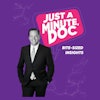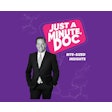
You don't understand it. Your talented, experienced team members just aren't meeting your expectations. It's clear their lackluster performance is holding the practice back, but you're not sure what to do about it.
 Sally McKenzie, CEO of McKenzie Management.
Sally McKenzie, CEO of McKenzie Management.The first step? Figure out why they're underperforming. It's not because they don't care about the practice or take pride in their jobs. Most employees want to do their part to contribute to practice success -- and become frustrated if they're not able to. The issue is likely a lack of guidance. If employees don't know what's expected of them, they feel uncertain about their role, and that leads to a lot of guesswork that ultimately hurts their performance and the practice.
Many dentists I talk with don't spend much time giving team members direction, especially experienced team members. They expect them to instinctively know what to do. While that would be nice, it's not realistic. For employees to meet your expectations, they have to understand what those expectations are. They need guidance, and one of the best ways to provide that guidance is through a performance measurement system.
If you don't have a performance measurement system in place, now is the time to change that. Here are three tips to help you get started.
1. Develop detailed job descriptions
I know what you're thinking. Job descriptions are a waste of time. Let me tell you why they're not. Job descriptions give team members the guidance they crave and the confidence they need to effectively perform their jobs. They serve as a road map to success. Without them, your team members feel lost.
I suggest you create a job description for every role in the practice. Include a definition of the job, the skills required, and specific responsibilities. Leave no doubt about who's responsible for what, and you'll not only notice a difference in employee performance but also see a reduction in team conflict and the problems that come along with it.
You can start by looking at your dental assistant's job description. Duties should include attending morning huddles, directing the doctor to check hygiene patients, completing post-treatment care calls, converting emergency patients to new patients, promptly turning the treatment room over, and educating patients about the quality of care the practice provides.
As you develop the dental assistant job description and others, remember to avoid overlapping duties. When duties overlap, no one is truly accountable for any practice systems, and that means no one takes ownership of maintaining and improving them. Team members end up with tasks rather than responsibilities, and many of those tasks start to fall through the cracks because no one knows who is actually doing what.
While overlapping duties can lead to inconsistency and confusion, there are times when you need employees to fill in for each other. That's why cross-training is so important. If your employees are cross-trained, they'll be able to take over duties for coworkers who are out sick or on vacation, but everyone will still know who is ultimately responsible for each system.
2. Give team members what they need to excel
You have to lay the groundwork for success. That means providing team members with the tools and training they need to perform their job. Many dentists don't like to spend time and money on training, but trust me, it's well worth the investment. When employees are trained properly, they're more confident and effective. They're also happier. This all positively impacts their overall performance, and that means great things for your practice.
Let's talk about the dental assistant again. Your dental assistant should be expected to complete a variety of duties, including the following:
- Taking bitewing x-rays that clearly show the distal of the cuspid
- Pouring defect-free molds
- Setting up instruments so you never have to reach for anything
- Converting 75% of emergency patients to comprehensive exams
- Providing daily reports on post-treatment calls
- Keeping the cost of dental supplies at no more than 5% of practice collections
Your dental assistant won't be able to achieve these goals without knowing they exist or without the proper tools and training. Providing your team members with everything they need will make a huge difference in their performance.
3. Understand that what gets measured gets done
That's right. If team members know their performance is being measured, they're much more likely to complete assigned duties. So, your performance appraisal instrument should evaluate these areas:
- Ability to follow instructions
- Incidents of errors in an employee's work
- Initiative, commitment, and innovation in carrying out responsibilities and improving workflow
- Willingness to help and cooperate with others
- Work ethic, attitude, and productivity
When team members have clear direction from you, the practice CEO, their jobs become more rewarding. They know how to contribute to practice success and begin to take ownership of their systems. Simply put, they're able to give you their best. Provide direction and you'll notice a dramatic change in employee performance.
If you are interested in setting up performance measurements for your team, there is no sense in reinventing the wheel. I offer an e-book and downloadable Excel graphs.
Sally McKenzie is the CEO of McKenzie Management, a full-service dental practice management company. Contact her directly at 877-777-6151 or at [email protected].
The comments and observations expressed herein do not necessarily reflect the opinions of DrBicuspid.com, nor should they be construed as an endorsement or admonishment of any particular idea, vendor, or organization.



















